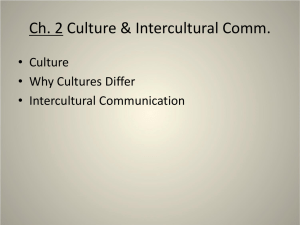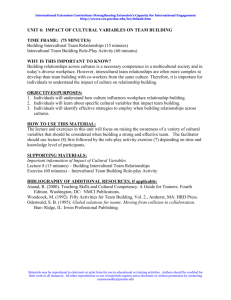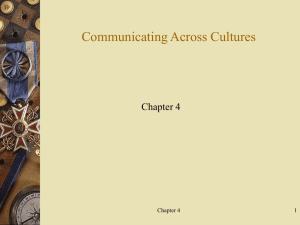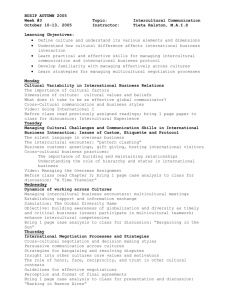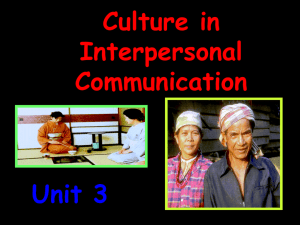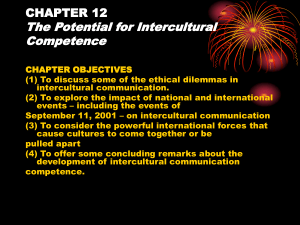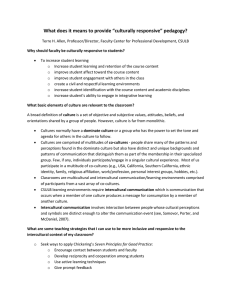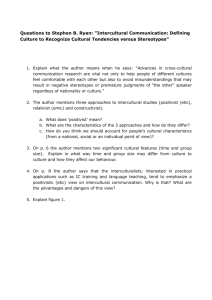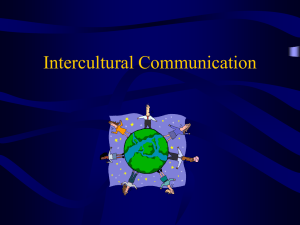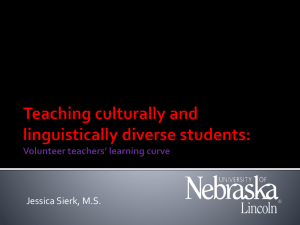Scaffolding Culturally Proficient L2 Learning thru Indigenous
advertisement
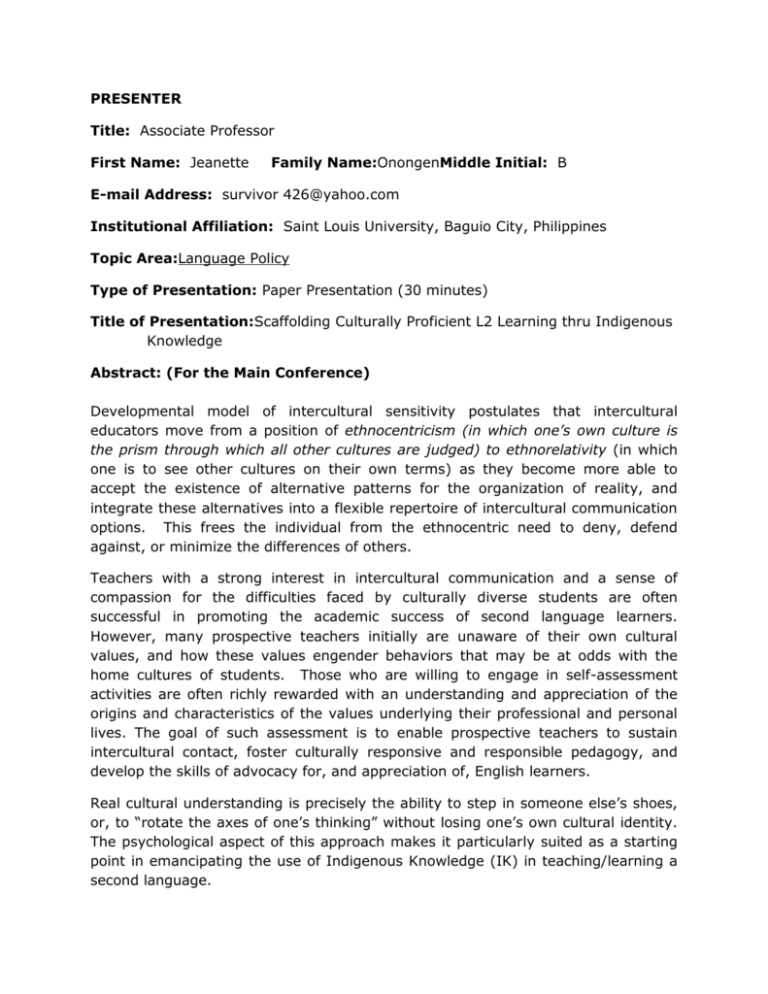
PRESENTER Title: Associate Professor First Name: Jeanette Family Name:OnongenMiddle Initial: B E-mail Address: survivor 426@yahoo.com Institutional Affiliation: Saint Louis University, Baguio City, Philippines Topic Area:Language Policy Type of Presentation: Paper Presentation (30 minutes) Title of Presentation:Scaffolding Culturally Proficient L2 Learning thru Indigenous Knowledge Abstract: (For the Main Conference) Developmental model of intercultural sensitivity postulates that intercultural educators move from a position of ethnocentricism (in which one’s own culture is the prism through which all other cultures are judged) to ethnorelativity (in which one is to see other cultures on their own terms) as they become more able to accept the existence of alternative patterns for the organization of reality, and integrate these alternatives into a flexible repertoire of intercultural communication options. This frees the individual from the ethnocentric need to deny, defend against, or minimize the differences of others. Teachers with a strong interest in intercultural communication and a sense of compassion for the difficulties faced by culturally diverse students are often successful in promoting the academic success of second language learners. However, many prospective teachers initially are unaware of their own cultural values, and how these values engender behaviors that may be at odds with the home cultures of students. Those who are willing to engage in self-assessment activities are often richly rewarded with an understanding and appreciation of the origins and characteristics of the values underlying their professional and personal lives. The goal of such assessment is to enable prospective teachers to sustain intercultural contact, foster culturally responsive and responsible pedagogy, and develop the skills of advocacy for, and appreciation of, English learners. Real cultural understanding is precisely the ability to step in someone else’s shoes, or, to “rotate the axes of one’s thinking” without losing one’s own cultural identity. The psychological aspect of this approach makes it particularly suited as a starting point in emancipating the use of Indigenous Knowledge (IK) in teaching/learning a second language. PRESENTER Title: Associate Professor First Name: Jeanette Family Name:OnongenMiddle Initial: B E-mail Address: survivor 426@yahoo.com Institutional Affiliation: Saint Louis University, Baguio City, Philippines Topic Area:Sociolinguistics Type of Presentation: Paper Presentation (30 minutes) Title of Presentation: Towards a Home Culture-Based Second Language Acquisition Model ABSTRACT:(For the Regional Symposium) As language pedagogy is rapidly changing to meet the needs of communication and interaction, it is urgent that language teachers reevaluate the ways in which culture is taught in the classroom. In the last ten years, much has been done to provide teachers and textbooks with cultural authentic materials. The methodology, however, is lagging behind. It is not for lack of excellent studies on the “silent language” of cultural attitudes and values, or thorough investigations into the nature of formal versus deep culture, or studies in cross-cultural communications, or many useful suggestions for cultural activities in the classroom, that the current study is being pursued. Yet most often than not educators find it challenging having to construct a clear connection that bridges language and culture for expediting second language acquisition. Hence, in the teaching and in the learning of English as a second language, it is hereby advanced that Cordillera Annual Festivals shall serve as the main anchor in the design of instruction. This therefore promotes the preservation and the emancipation of home culture identity while acquiring English as second language. In this instance, the American or British culture does not dominate the context in which the second language is taught.
